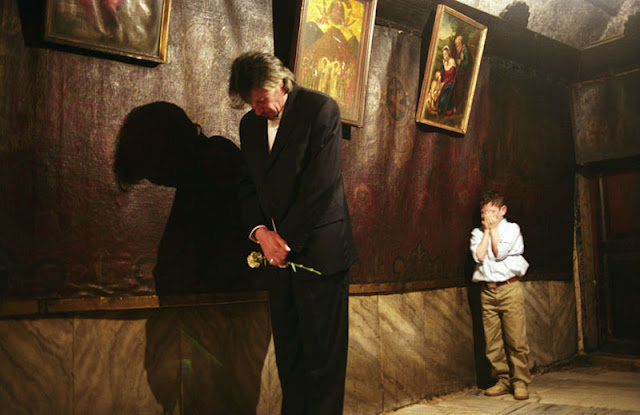Saturday, December 4, 2010
Escape In Israel by Leonie Purchas
The secular and the religious permeates Leonie Purchas's photo-essay. Inspired by the eighty-seven percent rise in tourism to Israel in 2004, her title Escape in Israel might appear to be ironic and condemnatory in a place where boundaries and territory are deadly subjects of dispute.
What stands out in these images is their ability to not only treat their subjects with sympathy as much as humour, but to see in this conflict-ridden part of the world an uneasy alliance of differences that emerge through proximity. The wider scope of this visual narrative takes us from Eilat, recently named the safest resort in Israel, to Bethlehem, the site of a siege in 2002, to Jerusalem, wich has never come under attack from suicide bombers, to the seafront at Haifa. Innocuous titles like Picnic by the Sea of Galilee or Eilat reveal everyday rituals that can be found in any number of locations around the world; there is an implied universality here. However, it is the curious juxtapositions of the secular and the religious that set these images apart, the sombre black and white clothing, hair and headgear of male Hassidic Jews caught at the moment of dispersal against the backdrop of a picnic setting or a young boy wrapped in a scarf on the beach, standing by a woman in a bathing costume who makes a call on her mobile telephone. Each of these condense the problematic conditions of living in an age of network communication and accelerated rates of travel that encourages proximity and connectedness, whilst the disjuncture between modernity and religious belief suggests stasis, a though nothing has changed. This curious suspension of history as neither yesterday nor tomorrow is humorously depicted in The Dead Sea in which we find bathers covered in mud lying prone on the beach. They resemble badly formed clay statues: though animate beings their mud covered bodies imply death.









